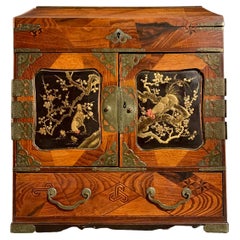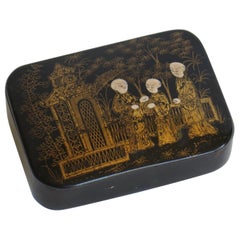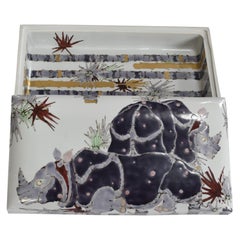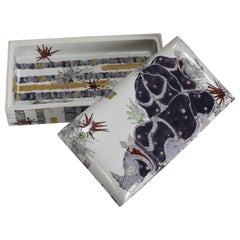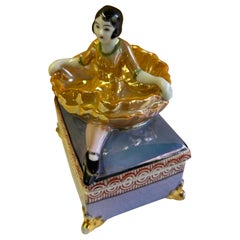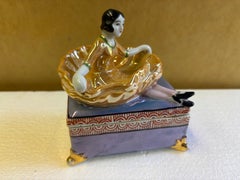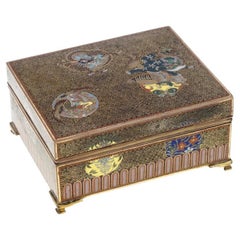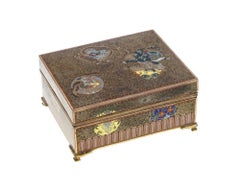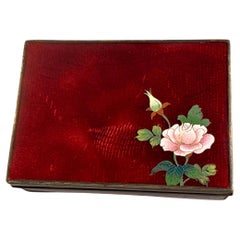Japanese Marquetry and Lacquer Jewelry Chest, Meiji Period, circa 1900, Japan
Located in Austin, TX
A very attractive Japanese wood table top jewelry or collector's chest with marquetry and lacquer decoration, Meiji period, circa 1900, Japan. Previously in the collection of Asbjorn Lunde (1927 - 2017). The chest is crafted in the form of a Chinese seal...
Early 1900s Meiji Antique Japanese Boxes
Wood, Softwood, Lacquer
